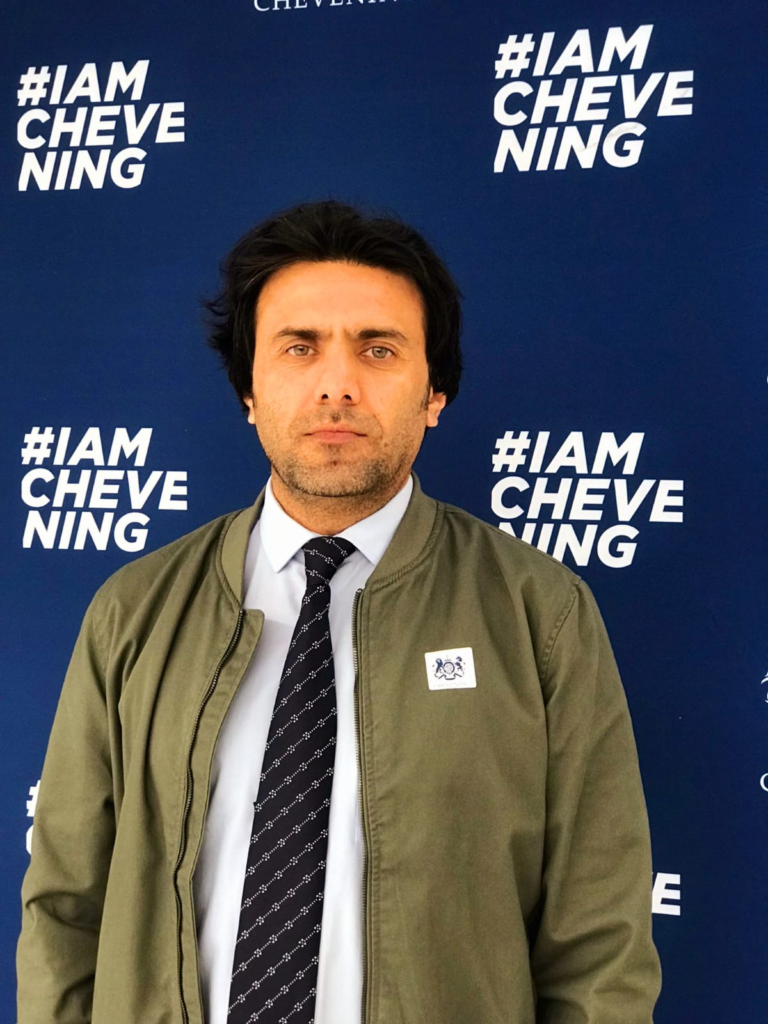Abdul Ghani Amin – a PhD student in the School of Social and Political Sciences, Philosophy, and Anthropology – encourages us to take a fresh perspective on the challenges of postgraduate research life.
In my view, the academic journey — no matter how exciting — is like a bumpy road, filled with ups and downs. Balancing the demands of academic work — research, writing, feedback, and deadlines — alongside personal responsibilities such as family commitments and day-to-day stressors, can often feel like a delicate juggling act.
There are moments when it seems like everything is slipping out of control. That sense of helplessness can grow quickly into anxiety and emotional fatigue.
And yet, from my experience, often, the real problem is not the situation itself, but how we choose to respond to it.
The Cockroach Metaphor effectively conveys this idea. A cockroach flies into a restaurant. When a customer screams in panic, other customers start to panic as well. The cockroach causes chaos, flying from person to person. It finally lands on a waiter. The waiter watches it calmly, gently catches it, and carries it out of the restaurant.
The cockroach was not the problem. It was people’s reactions that created the panic.
This reflects the viewpoint of Stephen Covey in his book ‘The 7 Habits of Highly Effective People,’ where he notes, ‘The way we see the problem is the problem’. (Covey, 2020, p. 40). Often, the event itself is not what counts; rather, our interpretation and reaction to it determines so much.
In my academic journey, I have discovered the relevance of the cockroach metaphor. Let’s say a student receives critical feedback from a supervisor or examiner. The feedback is part of the process. In fact, it can be very constructive – an opportunity to further enhance quality. But if the student reacts with frustration, or self-doubt, the issue can feel much worse than it is.
Sometimes, we are not prepared for the kind of feedback we receive. Other times, we simply have not built in the time or space to respond properly. In both cases, our reaction — not the feedback — becomes the problem.
In these kinds of situations, I have found it helpful to pause. Instead of panicking or feeling overwhelmed, I take a step or two back to breathe; to detach from the emotion; and then return to the task with a clearer and calmer mind.
One of the most valuable lessons I have learned from my supervisor is to prioritise my health and think positively, especially when feeling anxious or overwhelmed. When I was working long hours — sometimes up to 16 a day — all while raising three children and supporting a partner who was severely affected by the trauma of our forced migration from our country, my supervisor advised me to take a short break and spend time with family. At first, this felt counterintuitive; how could I take time off during a crisis? In situations like this, I had always considered time as a lost opportunity.
However, over time, I realised their advice was in line with Stoic philosophy, which emphasises focusing on what we can control. I decided to give it a try and therefore took a small break. It was upon my return that I realised the break had not slowed me down; it allowed me to return stronger, enabling me to respond, not react. Time turned out to be an investment, not a waste.
As someone from the Global South who spent my childhood in a refugee camp and later living through war upon returning to my country, I understand that adopting a positive, proactive mindset is not always easy — especially when everything seems to be falling apart. However, it becomes easier with practice.
Here are a few things that have helped me stay grounded during challenging situations:
- Practice taking a break – even if it is a day or two before responding to difficult emails, feedback, or unexpected challenges.
- A short conversation with a supervisor, peer, friend or family member, can have magical effects. I remember a friend once told me that when you share happiness with someone, it doubles — but when you share grief, it divides, leaving you with only a remarkably smaller part of its burden. In other words, sharing your struggles with your sympathisers whoever they might be, can make you feel stronger and more capable of carrying the burden.
- Meditation, going to the gym, taking a walk, or simply watching the waves — especially when the weather allows — can help you process your thoughts more calmly.
- For me, morning is the best time — I find I have more patience to cope with challenges and to process even the most difficult situations with a calmer mindset.
In addition to completing a thesis or writing and publishing articles, the academic journey is also about learning emotional resilience — understanding that our reactions shape our experience more than we realise. The good news is that, like other transferable skills, this ability can become an asset — not only in the workplace, but also in personal and social life. This is especially true in a time of growing uncertainty shaped partly by rapid advancement of AI.
In a nutshell, life as a student is undeniably stressful, but we have more control than we think. The goal is not to avoid problems — that may often be impossible. Instead, it is about developing the strength to face challenges with a calm, thoughtful response. As the cockroach story teaches us, we can either add to the chaos — or quietly guide the problem out the door.
Covey, S.R., 2020. The 7 Habits of Highly Effective People: 30th Anniversary Edition. Simon and Schuster.

Abdul Ghani Amin is a PhD student in the School of Social and Political Sciences, Philosophy, and Anthropology, supervised by Professor Nick Gill. He has extensive expertise of working with the United Nations, having accrued ten years of hands-on experience in the management of programs and projects in Afghanistan. Abdul’s main area of expertise centres on the domains of peacebuilding, governance, and sustainable development. He has an MA in Conflict, Security and Development from the University of Sussex. Abdul’s PhD investigates how differences in engagement of diasporas with US foreign policy shape political outcomes.

